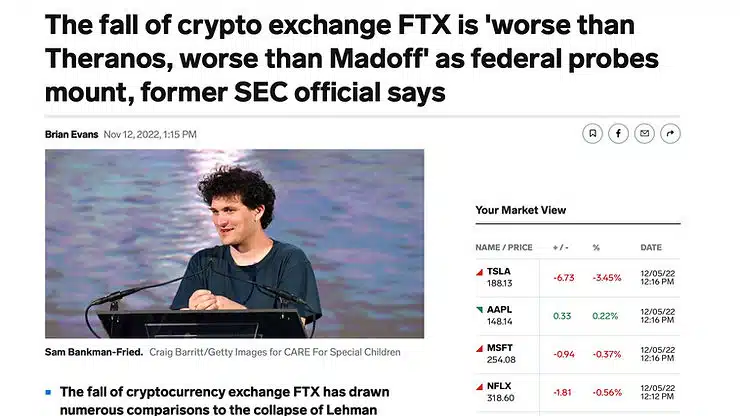“Doesn’t anyone do due diligence any more?” – the risks of the too-good-to-be-true

“Doesn’t anyone do due diligence any more?” Brooke Masters asked in a recent article in the Financial Times.
In recent years, due diligence into investments into unproven technology and cryptocurrency exchanges has often gone backwards, she said.
In the past, due diligence meant checking whether gold mines really worked, hiring accounts and running everything past lawyers. In recent years, “the hands-on work usually fell to the youngest lawyers, consultants and bankers. Today’s 20-somethings have no meaningful downturn experience so were less experienced at judging the adequacy of controls and clauses that only matter when money starts to run out.”
Venture capital expects most of its early stage investments to fail, but in the last couple of years this approach started to enter deals worth billions.
It is little surprise that huge investments into too-good-to-be-true companies such as FTX, Theranos, and some tech companies that went public in the frenzy of 2020-21, made with minimal due diligence, turned out to be bad ones.
There is an irony that many of these investments were into ambitious, advanced technology, but were investigated using manual, outdated methods.
If any of these founders or companies had been run through Xapien, the investors would have been equipped with a great deal more information about them, their associates, and the risks of going into business – delivered in a concise report in under 10 minutes.
Could things have turned out differently? It’s possible. We’d say investors owe it to their LPs to find out next time.
Learn more about how Xapien can deliver in-depth AI-powered reports on any person or entity in under 10 minutes by booking a demo.
Image from Business Insider.
AI insights, straight to your inbox
Stop searching.
Start knowing.
Search engines are great but they are only the starting point. Finding, reading and condensing the full picture is slow, hard, and painstaking work. Xapien can help.